We are in full chick season so let’s talk about something VERY important- flock integration. As some of you may know, last January I lost half of my flock to a hawk attack. I was devastated and had zero plans to add more chickens to my flock.
But I decided I didn’t want my two surviving girls to get lonely so I ordered a few more chicks. I ordered 3 standard chicks (Frenchy, Pepper and Dolly) and 5 bantam chicks (Millie, Gladys, Betty, Nancy and Marge).
When I started doing research on proper integration I had a hard time finding information on adding bantams with standard chickens. I was nervous that maybe it wouldn’t be possible to add tiny bantams to a standard flock. Fortunately I reached out to a few experts and they told me my bantams would be fine since there were five of them. After they told me that, I just went for it!
Here is a step by step guide on how I successfully integrated my chickens.
- Wait 8 Weeks
- Introduction
- Allow Free-Range Together
Place New Chicks in Coop at Night
Read on for an in-depth explanation on each step.
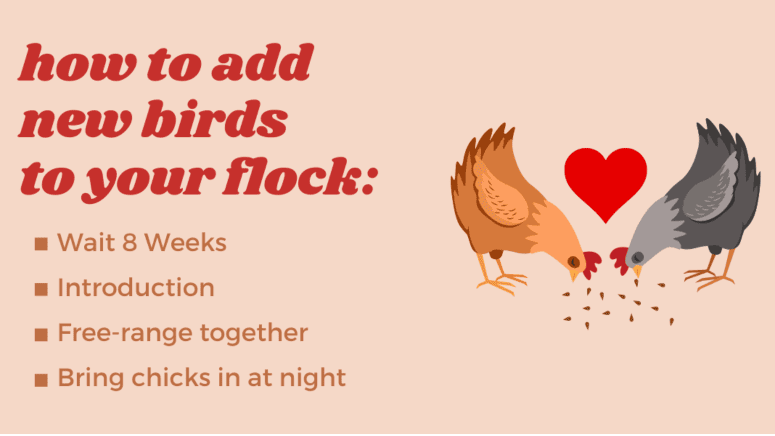
Step 1: Wait 8 Weeks
The first and most important step to wait until your chicks are at least 8 weeks old. I waited even longer since I had bantams. The rule of thumb is to wait to introduce new chicks until they are close in size to the other chickens.
You do this so the chicks can hold their own when getting pecked by the older ones. Sadly it will happen but if you wait until they are bigger they won’t get seriously hurt. As mentioned in the beginning of this post, NEVER EVER throw small chicks in with full sized chickens. The big chickens see them as a threat and can possibly kill them.
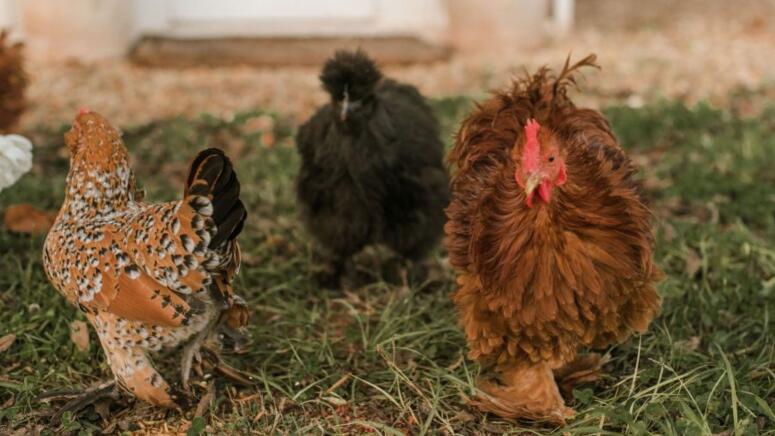
Step 2: Introduction
Once your chicks are old enough, transition them to an outdoor coop around the older chickens. I used a hutch and placed it inside of the chicken run. This way they can all meet without actually touching.
I have also seen people use old dog crates instead of a hutch. This is also a more affordable way because you can easily get a used dog crate on Facebook Marketplace or Goodwill.
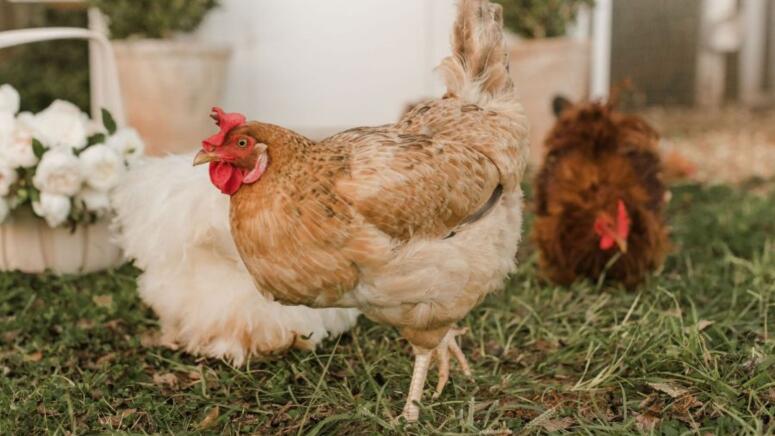
Step 3: Allow to Free Range Together
After 1-2 weeks of introducing and not touching, allow your whole flock to free range in your yard. Make sure you are there to watch for any bullies.
Keep in mind some pecking is normal but you want to make sure the big chickens don’t gang up on the new ones. I let mine do this various times before I made the final integration.
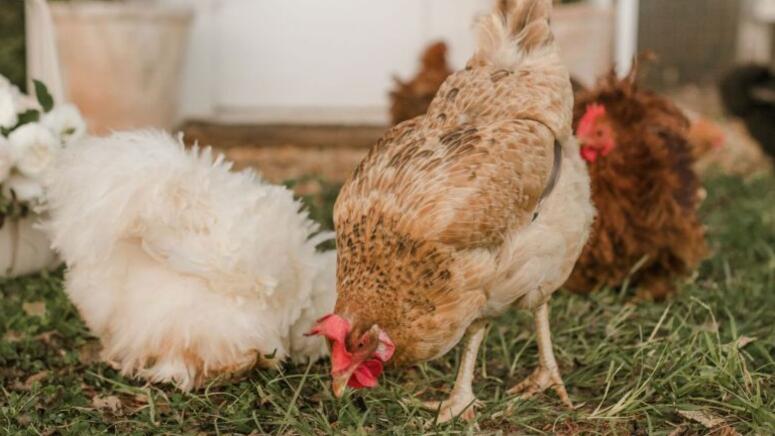
Step 4: Place New Chicks in Coop at Night
For the final step sneak the new chicks into the coop at night. Remember that chickens cannot see at night so when they wake up they will magically all be together. For the first few days I would wake up right after sunrise to check on everyone.
Also, keep in mind that you will have to physically place the new chickens in the coop for the few nights because they will not know where to go. It has usually taken 2-3 nights of doing this for them to learn to go inside on their own.
- Extra Caution with Bantams: Since bantams are significantly smaller than standard chickens, keep in mind that you need to wait even longer to introduce them to your flock. If you have ALL bantams, then you don’t have to worry as much. A few things I do differently when introducing a new bantam is I wait until they are closer to 10-12 weeks. I also make sure to leave “hiding spots” for them to retreat to if they feel unsafe in the coop and run.
- Adding a Full Grown Chicken: Introducing a new, full grown chicken to your flock is much easier than chicks because you don’t have to wait as long. What you do need to do is quarantine for at least 2 weeks to make sure the chicken is not sick. I have heard many horror stories of someone getting a brand new chicken and just throwing it in with their existing flock not knowing the chicken is sick. Certain diseases can wipe out your whole entire flock in days! Avoid this happening to you but putting the new chicken in a hutch or dog crate for 1-2 weeks. This will also allow your other chickens to get to know the new chicken while maintaining some distance. Even chickens have to practice social distancing sometimes! Ha!
I hope that this blog post helps you successfully integrate your new chickens!
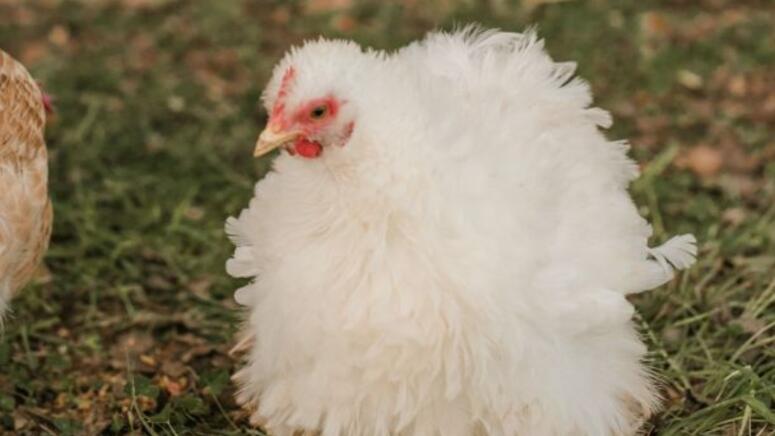
Feature Products

